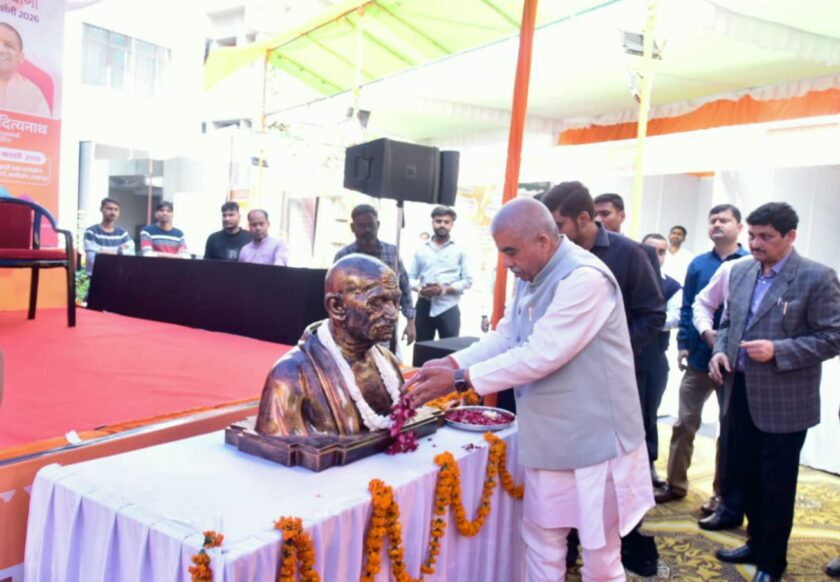Mahakumbh Nagar: Preparations are underway to ensure that the Mahakumbh 2025 is not only a spiritually enriching experience but also a clean and healthy one for pilgrims from India and abroad. Under the guidance of Uttar Pradesh Chief Minister Yogi Adityanath, special arrangements are being made to create a “Swachh and Swasth Mahakumbh” (Clean and Healthy Mahakumbh). Among these measures is the deployment of a Vector Control Unit tasked with keeping the mela area insect-free, particularly free from mosquitoes and flies, to prevent diseases such as dengue, malaria, and chikungunya.
Comprehensive Vector Control Plan
To ensure the health and well-being of millions of devotees, the state government has established a well-structured Vector Control Unit. According to Dr. V.P. Singh, Joint Director and Nodal Officer (Vector Control) for Mahakumbh, the mela area has been divided into five zones, each subdivided into five sectors, resulting in 25 sectors overall.
- Sector Management: Each sector will be supervised by an Assistant Malaria Officer (AMO), while 35 sanitation circles have been established within these sectors. Each circle will have Malaria Inspectors who will oversee spray operations carried out by workers.
- Insecticide Spraying: A systematic spraying of insecticides across every inch of the mela grounds will be conducted to ensure a safe environment for pilgrims.
Facilities Beyond the Mela Grounds
Spraying will not be limited to the main mela area but will also cover parking lots and surrounding regions. This is particularly important as parking areas now include improved facilities such as toilets.
- Logistics Support: Each zone is equipped with a sub-store holding a three-day supply of insecticides, ensuring uninterrupted operations. To facilitate distribution, 25 hired vehicles, each staffed with two workers and a supervisor, will deliver insecticides to designated areas while conducting inspections.
Emergency Preparedness
A dedicated emergency response plan has been established, comprising a team of 45 trained workers stationed across zones in shifts to address unforeseen situations without disrupting ongoing activities. These workers have received special training to operate fogging and spraying equipment in emergencies.
Coverage Beyond Mela Boundaries
To ensure the effectiveness of these measures, spraying operations have extended to a one-kilometer periphery around the mela area, divided into seven zones. This strategy acknowledges the mobility of mosquitoes, which can travel up to two kilometers. Spraying and anti-larva treatments have been ongoing in these peripheral zones since November 15.

Workforce Deployment
The Vector Control operations are supported by an extensive workforce:
- Daily Wages Workers:
- 100 workers are currently engaged, and this number will increase to 150 soon.
- By January 1, an additional 550 workers will join, followed by another 900 by January 11, bringing the total to 1,500 daily wage workers during the mela.
- Permanent Staff: Around 250 permanent staff, including 45 Malaria Inspectors, 28 Assistant Malaria Inspectors, five District Malaria Officers, 80 supervisors, and 70 trained field workers, have been requested from various districts.
Improved Facilities for Workers
For the first time, special arrangements have been made to provide accommodation and food for workers engaged in spraying and fogging activities. These provisions aim to reduce commuting challenges and ensure the availability of workers as needed. This initiative highlights the government’s commitment to safeguarding the well-being of both pilgrims and workers.
Significance of These Measures
These measures demonstrate the Uttar Pradesh government’s proactive approach to managing the Mahakumbh, ensuring a clean, hygienic, and safe environment for the millions of devotees expected to attend. By addressing potential health hazards such as vector-borne diseases, the administration is setting a benchmark for large-scale event management.
The meticulous planning and deployment of resources reinforce the essence of Mahakumbh as not just a religious congregation but also a well-managed global event, ensuring the comfort and safety of every pilgrim.









